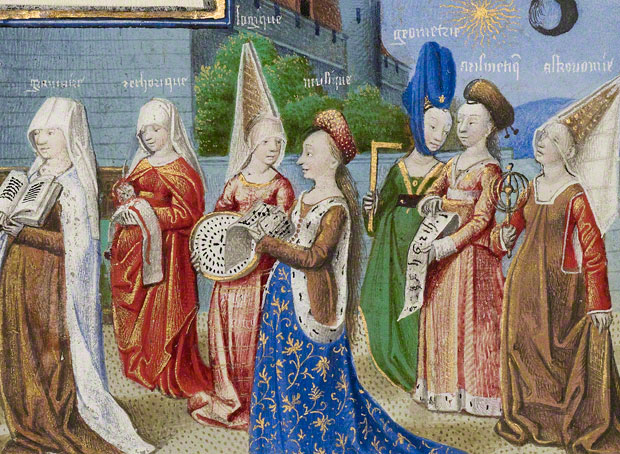The 800 year old Querelle des Femmes translates as the “quarrel about women” and amounts to what we today refer to as the gender-war. In its narrow sense, this term refers to a genre of Latin and French writing in which the superiority of one or the other sex has been proposed with the primary aim of determining the status of women.
The timeframe of the querelle begins in the twelfth century, and after 800 years of debate finds itself perpetuated in the feminist-driven reiterations of today (though some authors claim, unconvincingly, that the larger querelle came to an end in the 1700s).
For more about the history of La Querelle des Femmes, the following paper by historian Joan Kelly is instructive. The paper was written with a feminist focus thus leaving out all but the most superficial characterization of the male experience of gender relations. Nevertheless it provides much important history and for that I have no hesitation in recommending it.
* * *
Early Feminist Theory and the Querelle des Femmes
By Joan Kelly (1982)
We generally think of feminism, and certainly of feminist theory, as taking rise in the nineteenth and twentieth centuries. Most histories of the Anglo-American women’s movement acknowledge feminist “forerunners” in individual figures such as Anne Hutchinson, and in women inspired by the English and French revolutions, but only with the women’s rights conference at Seneca Falls in 1848 do they recognize the beginnings of a continuously developing body of feminist thought.
Histories of French feminism claim a longer past. They tend to identify Christine de Pisan (1364-1430?) as the first to hold modern feminist views and then to survey other early figures who followed her in expressing pro-woman ideas up until the time of the French Revolution. New work is now appearing that will give us a fuller sense of the richness, coherence, and continuity of early feminist thought, and I hope this paper contributes to that end.
What I hope to demonstrate is that there was a 400-year-old tradition of women thinking about women and sexual politics in European society before the French Revolution. Feminist theorizing arose in the fifteenth century, in intimate association with and in reaction to the new secular culture of the modern European state. It emerged as the voice of literate women who felt themselves and all women maligned and newly oppressed by that culture, but who were empowered by it at the same time to speak out in their defense. Christine de Pisan was the first such feminist thinker, and the four-century-long debate that she sparked, known as the querelle des femmes, became the vehicle through which most early feminist thinking evolved.
The early feminists did not use the term “feminist,” of course. If they had applied any name to themselves, it would have been something like defenders or advocates of women, but it is fair to call this long line of prowomen writers that runs from Christine de Pisan to Mary Wollstonecraft by the name we use for their nineteenth- and twentieth-century descendants. Latter-day feminism, for all its additional richness, still incorporates the basic positions the feminists of the querelle were the first to take.
![]() To read the rest of Joan Kelly’s essay online click here
To read the rest of Joan Kelly’s essay online click here
See also related: Querelle du Mariage
